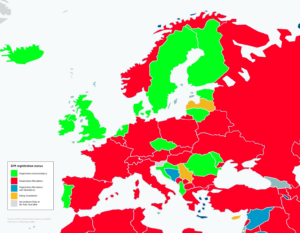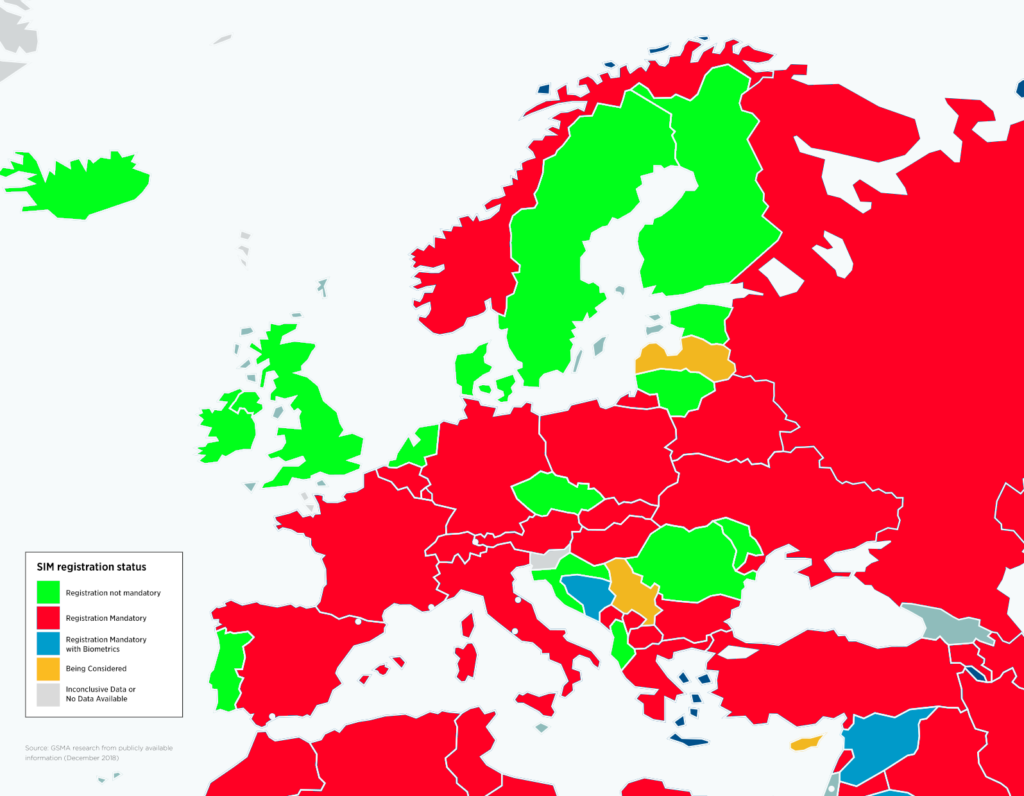No right to anonymous communications? European Court of Human Rights rubber-stamps mandatory SIM card registration laws
 The European Court of Human Rights today ruled the general and indiscriminate compulsory identification of all users of SIM cards for mobile phones and smartphones compatible with human rights (case no. 50001/12). The complainant, civil rights activist and MEP of the Pirate Party Patrick Breyer comments:
The European Court of Human Rights today ruled the general and indiscriminate compulsory identification of all users of SIM cards for mobile phones and smartphones compatible with human rights (case no. 50001/12). The complainant, civil rights activist and MEP of the Pirate Party Patrick Breyer comments:
Today is a black day for whistleblowers and press informants, political activists and people in need of advice, who often fall silent without the protection of anonymity. Anonymity protects courageous and needy people and guarantees the free exchange of vital information.
The majority of judges have refused to decide whether the right to freedom of expression encompasses a right to anonymous communications (paragraph 62 of the judgement). Only the Swiss judge Carlo Ranzoni, in his dissenting opinion, understood what is at stake: Knowing the identity of all telephone and internet users gives the state the key to sniffing out everybody’s private communications and movements.
I recommend that anyone who wishes to protect their privacy should use anonymous prepaid cards from EU countries like the Netherlands and Denmark. The use of anonymisation services for browsing the Internet is also highly recommended to protect against false suspicion, espionage and blackmailing. Today’s judgment is a wake-up call to defend our fundamental rights against surveillance state and surveillance capitalism policies by political means.
Today’s ruling and the dissenting opinion of Judge Ranzoni in full text
Who are the complainants?
Complainant Patrick Breyer is a civil liberties activist and MEP for the Pirate Party. He has successfully appealed to the Federal Constitutional Court against the law on the retention of all connection data.
https://en.wikipedia.org/wiki/Patrick_Breyer
Complainant Jonas Breyer is a lawyer in Wiesbaden specialising in data protection.
What are the complainants’ main arguments?
Mandatory identification is useless because criminals routinely circumvent it (e.g. by providing false data, passing on SIM cards registered in other people’s names or using anonymous SIM cards from countries without mandatory identification policies). In many EU Member States there is no identification requirement.

The EU Commission has refused to introduce an identification requirement in 2011 on the following grounds: “So far, no evidence of the effectiveness of national measures has been provided”.
The obligation to identify oneself makes it unreasonably difficult for technically inexperienced citizens to obtain advice or assistance over the telephone, report crimes or inform the press of grievances without fear of harm. This can cost human lives, e.g. if criminals can no longer anonymously turn to the telephone counselling service for fear of persecution.
In the street and by post, one can communicate without having to state one’s name and date of birth. This should not be any different for digital communications.
Where can I find more information?
The full text of the appeal and briefs
Today’s judgement and the dissenting opinion of judge Ranzoni in full text

Comments